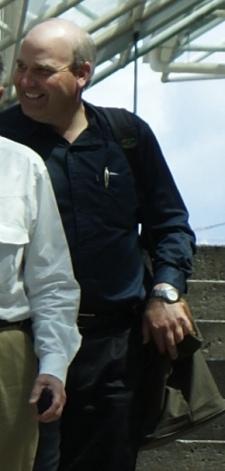BC’s Supreme Court will be asked to decide if polygamy should remain illegal in Canada, the province’s attorney general announced Thursday.
Mike de Jong says the government will make submissions in support of retaining the law as it stands in the Criminal Code.
“We believe polygamy is against the law and should remain against the law,” de Jong says.
The move comes a month after BC Supreme Court Justice Sunni Stromberg-Stein quashed polygamy charges against two leaders of a fundamentalist Mormon polygamous community in western Canada.
The judge ruled former attorney general Wally Oppal did not have the authority to appoint a second special prosecutor to consider the cases of Winston Blackmore and James Oler after the first special prosecutor recommended against charging the two men.
Oler and Blackmore petitioned the court to stay the charges, arguing that Oppal had gone “special prosecutor shopping” until he found someone who would proceed with charges.
The judge agreed. She called it an interference with the charge approval process that the use of special prosecutors is meant to prevent.
The case had been expected to go as far as the Supreme Court of Canada.
Now, de Jong says, the BC Supreme Court will hold evidentiary hearings to determine if the law criminalizing polygamy is valid.
It’s not known when the case, known as a constitutional reference, will be heard.
Canadian Minister of Justice Rob Nicholson says he supports the court reference.
“The practice of polygamy has no place in modern Canadian society,” he says in a statement. “The government of Canada firmly believes that the Criminal Code prohibition against polygamy is consistent with Canadian values as well as compliant with the Canadian Charter of Rights and Freedoms.”
The first special prosecutor appointed by Oppal suggested a constitutional reference to the BC Court of Appeal.
De Jong says the case may ultimately have to be decided by the Supreme Court of Canada.
The government of British Columbia does not have the power to refer cases to that court.
Blackmore and Oler have long maintained their polygamous practices are protected by Canada’s protection of freedom of religion.
Leaders of two separate factions of the Fundamentalist Church of Jesus Christ of Latter Day Saints, the men were arrested earlier this year and charged with one count each of polygamy. Blackmore was accused of having 20 wives, and Oler two. They were arrested at their Bountiful, BC commune Jan 7.
They are rival religious leaders in the polygamous Fundamentalist Church of Jesus Christ of Latter-day Saints community of Bountiful in southeastern BC.
After his arrest, Blackmore claimed there are tens of thousands of polygamists across Canada. He maintains his religious sect is being singled out, disregarding his right to religious freedom.
Polygamy charges can carry a maximum penalty of five years in prison on conviction.
Oppal, who was not re-elected in BC’s last provincial election, held that some legal experts believe polygamy charges won’t withstand a constitutional challenge in Canada over the issue of freedom of religion.
The former BC Court of Appeal judge said at the time of the arrest that he believes polygamy is an offence in law, and that the case is about the exploitation of women.
Blackmore was long known as “the Bishop of Bountiful.”
He runs an independent group of about 400 people in the hamlet only hundreds of metres from the US border.
He once ran the Canadian wing of the Utah-based FLDS but was ejected by Prophet Warren Jeffs.
Oler is the bishop of Bountiful’s FLDS community and is one of Jeffs’ followers, who was convicted by a Utah jury in 2007 on two counts of first-degree felony rape as an accomplice.
FLDS members practice polygamy in arranged marriages, a tradition tied to the early theology of the Mormon church. The mainstream church renounced polygamy in 1890, but several fundamentalist groups left the main church in order to continue the practice.
There have long been whispered allegations of abuse and exploitation of women and minors in Bountiful. But, says de Jong, authorities cannot proceed with charges without evidence.
“If there is evidence of sexual exploitation, if there is evidence of sexual abuse, then people should bring that forward,” he says.
Blackmore is represented by the same lawyer who represented Little Sister’s bookstore in the Supreme Court of Canada against Canada Customs’ book seizures.
Joe Arvay says his client should be allowed to participate in the case as the outcome affects him and his community.
“The government has completely bungled this polygamy thing from the get-go,” Arvay says. “I have yet to hear an apology to Mr. Blackmore.”
Arvay also says the government should reimburse Blackmore for his legal costs from the failed prosecution.

 Why you can trust Xtra
Why you can trust Xtra


